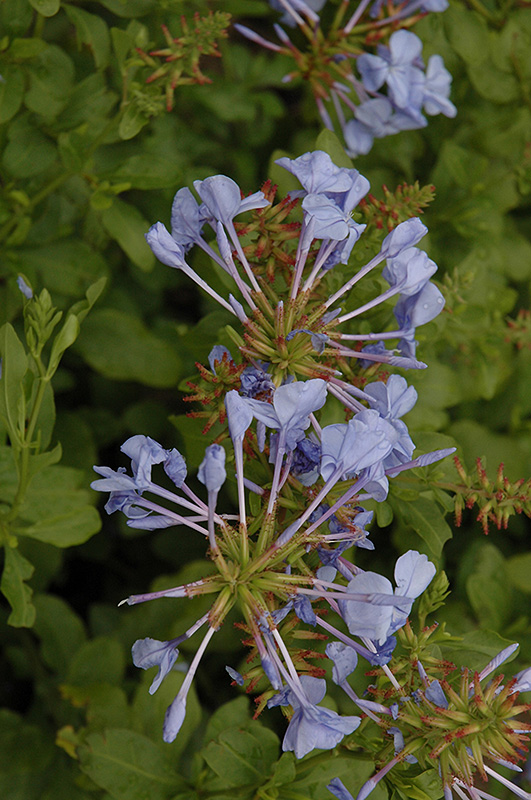3 feet
3 feet


(annual)
Cape Leadwort
Blue Cape Plumbago features showy clusters of sky blue star-shaped flowers at the ends of the branches from early spring to late fall. Its oval leaves emerge light green in spring, turning dark green in color the rest of the year.
Blue Cape Plumbago is a multi-stemmed annual with a shapely form and gracefully arching foliage. Its medium texture blends into the garden, but can always be balanced by a couple of finer or coarser plants for an effective composition.
This is a relatively low maintenance plant, and is best pruned in late winter once the threat of extreme cold has passed. It is a good choice for attracting butterflies to your yard. It has no significant negative characteristics.
Blue Cape Plumbago is recommended for the following landscape applications;
- Accent
- Hedges/Screening
- General Garden Use
- Container Planting
Blue Cape Plumbago will grow to be about 3 feet tall at maturity, with a spread of 4 feet. When grown in masses or used as a bedding plant, individual plants should be spaced approximately 3 feet apart. Although it's not a true annual, this plant can be expected to behave as an annual in our climate if left outdoors over the winter, usually needing replacement the following year. As such, gardeners should take into consideration that it will perform differently than it would in its native habitat.
This plant does best in full sun to partial shade. It prefers to grow in average to moist conditions, and shouldn't be allowed to dry out. It is not particular as to soil type or pH, and is able to handle environmental salt. It is somewhat tolerant of urban pollution. This is a selected variety of a species not originally from North America.
Blue Cape Plumbago is a fine choice for the garden, but it is also a good selection for planting in outdoor pots and containers. Because of its height, it is often used as a 'thriller' in the 'spiller-thriller-filler' container combination; plant it near the center of the pot, surrounded by smaller plants and those that spill over the edges. It is even sizeable enough that it can be grown alone in a suitable container. Note that when growing plants in outdoor containers and baskets, they may require more frequent waterings than they would in the yard or garden.
